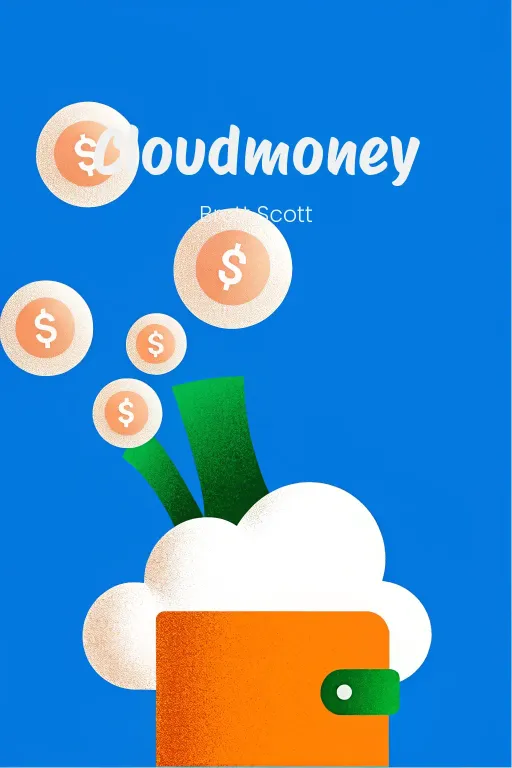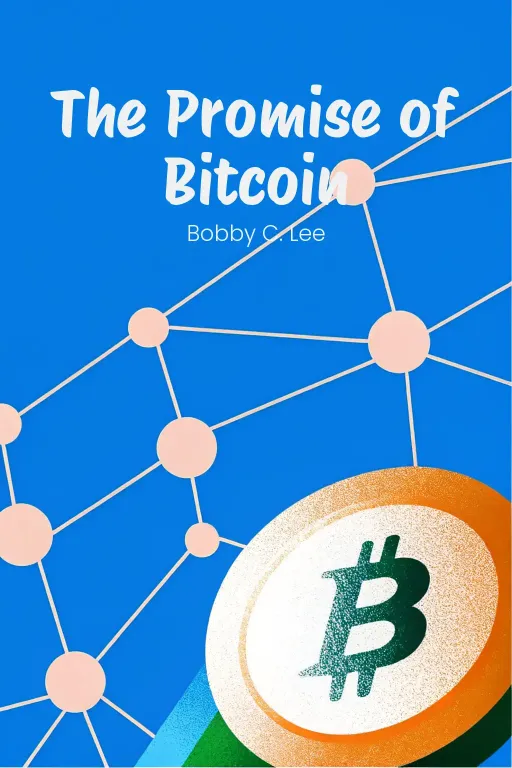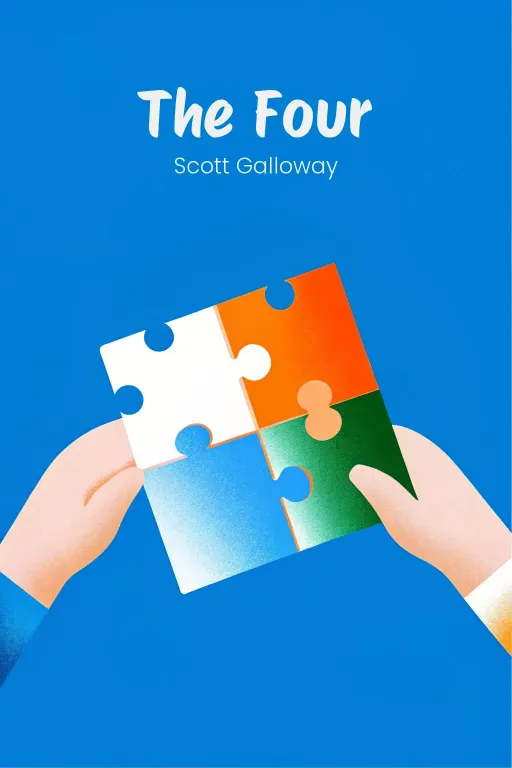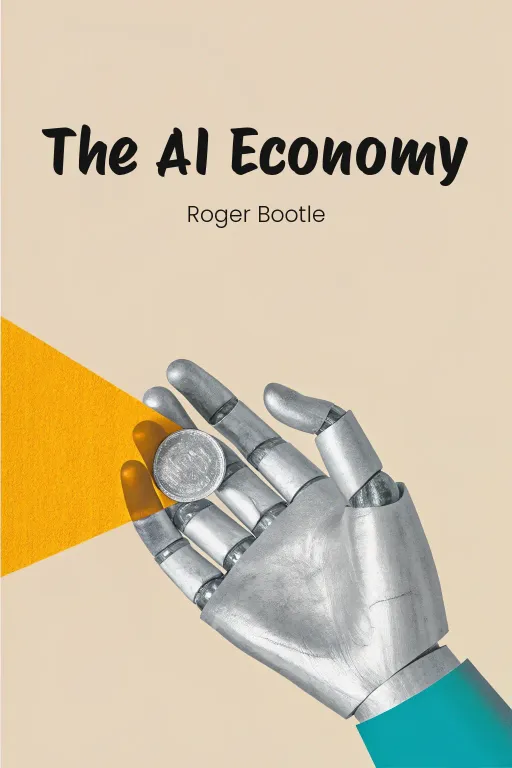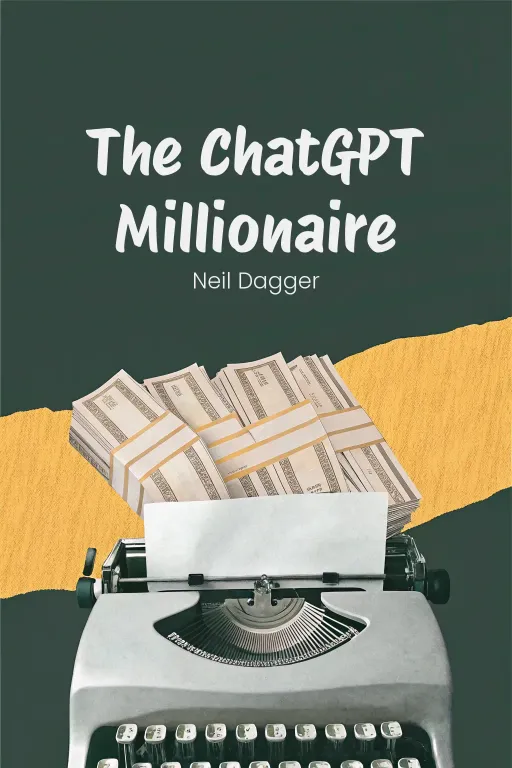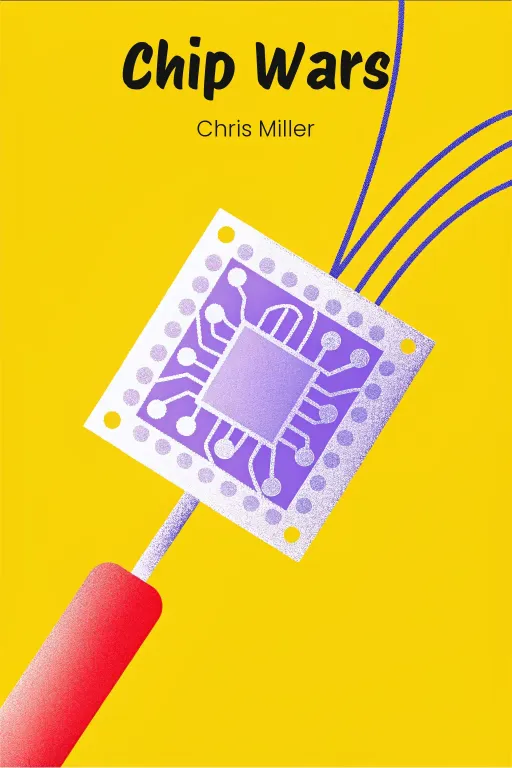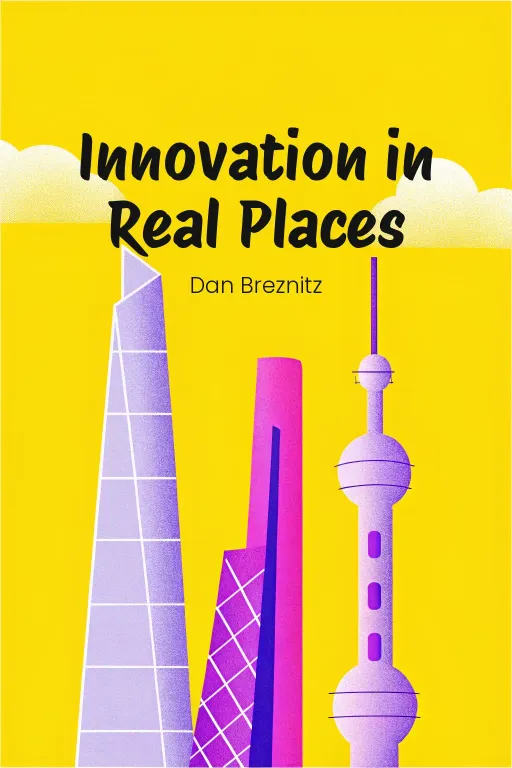
Tap, Swipe, Lose: Are You Paying Too Much?
Podcast by Wired In with Josh and Drew
Cash, Cards, Crypto, and the War for Our Wallets
Introduction
Part 1
Josh: Hey everyone, welcome back to the show! So, quick question: when was the last time you actually used cash? Seriously, think about it. These days it's all about tapping cards, scanning phones, maybe even using a digital wallet, right? But, have you ever wondered what we're losing as cash kind of... fades away? Drew: Good point, Josh. I mean, I think I've got one lonely twenty in my wallet right now. Everything else is either plastic or just lives on my phone. Look, cash is kind of gross, let's be honest - who knows where it's been? And who really has time to fumble with change when you can just tap and go, you know? Josh: Exactly, Drew, but here’s the thing: it's not just about convenience. Behind every tap and swipe, there's actually a deeper shift in power happening. The book we’re diving into today really gets into how Big Tech and Big Finance are shaping more than just how we pay, but, in a way, how we live. Drew: Okay, so we're talking full-on Silicon Valley dystopia territory here, right? Surveillance, privacy nightmares, corporate overreach… the usual suspects? Josh: Totally. The book really digs into how digital payment systems, cryptocurrencies, and, yeah, even central bank digital currencies come with a hidden cost. It really erodes privacy, entrenches inequality, and leaves a lot of people behind. Drew: Oh, sounds like a real feel-good story. Let me guess – the solution involves ditching tech and joining some barter-based commune? Josh: <Laughs> Not quite, though it does bring up some fascinating alternatives. Today, we're tackling three big ideas. First, the so-called "war on cash" and what it really means. I mean, how does moving away from physical money actually impact our privacy and marginal communities? Drew: Right, because who doesn't want every single transaction logged, tracked, and analyzed, am I right? Josh: Exactly! Second, we're going to unpack the promises and potential dangers of fintech and cryptocurrencies. They promise to democratize finance, but are they really just reinforcing the same old power structures? Drew: Yeah, I'm picturing tech bros in hoodies minting fortunes while shouting, like, “Decentralization for all!” Josh: And third, we'll connect the dots to show how all this is consolidating power in the hands of companies and governments, potentially at the expense of our freedom and autonomy. Drew: So, basically, convenience comes with strings attached? Or maybe chains? As in... blockchain. Josh: <Laughs> Nice one, Drew! But seriously, this is about more than just money. It's about control, choices, and the kind of world we want to live in. So, let's dive in, shall we?
The War on Cash
Part 2
Josh: Okay, Drew, let's dive into this "war on cash" thing. On the surface, ditching cash seems logical, right? I mean, it's bulky, easy to lose, maybe even a bit germy. But here's the thing: this isn't just a natural evolution. It's being “engineered”. Governments, banks, tech giants – they're all pushing for a cashless society. Drew: "Engineered," huh? Alright, you have my attention. Are we talking full-blown conspiracy theory here, or is it just that everyone's realized tapping a card is, like, super convenient? Josh: Not a tinfoil-hat conspiracy, exactly, but definitely a coordinated push. Remember how during COVID-19, cash was suddenly "dirty"? Ads, signs everywhere – handle cash, spread the virus! That wasn't just public service. It was also incredibly convenient for banks and payment companies who profit from every card swipe. Drew: Yeah, I remember all the "contactless payment preferred" signs. But wasn't that, you know, genuinely about safety? I mean, who wanted to exchange potentially infectious bills back then? Josh: Sure, safety was part of it. But the narrative stuck, even after the health concerns eased. Cash became "outdated", "dirty", "inconvenient". Meanwhile, these campaigns conveniently aligned with the financial industry. Think Visa and Mastercard – they make money on every digital transaction. A cashless world is a goldmine for them. Then there's the Better Than Cash Alliance, backed by the UN, corporations like Mastercard, and governments, pushing the idea that digital payments drive transparency and financial inclusion. But the reality? The "inclusion" part often leaves millions behind. Drew: Okay, now I'm picturing some backroom deal with executives celebrating increased credit card fees while we're all throwing away our paper money. So, who are we really talking about when you say “left behind”? I mean, everyone has smartphones and digital wallets these days, right? Josh: Not so fast. Globally, millions lack smartphones, reliable internet, or simply don't trust the financial system. Think of rural communities or low-income families. Cash is simple, direct, and doesn’t require a data plan or fancy tech. Imagine someone in a small, rural town. The nearest ATM is miles away. If the local store goes cashless, pressured by card companies, they're forced to adapt or travel just to buy groceries. And don’t even get me started on the fees for those "affordable" prepaid debit cards. Drew: That sounds like a major hassle. But digital payments have their upsides too, right? Faster transactions, more transparency – things cash just can't compete with. Josh: Faster for some, maybe, but not for everyone. Consider check-cashing services. We might see them as predatory, with their high fees. But for many unbanked people, especially in urban immigrant communities, they're a lifeline. They distrust banks, maybe due to immigration status or past financial issues, but they trust cash. As cash disappears, they lose even that imperfect safety net. Drew: I get it, but I still think tech could play a role. Why not make smartphones and digital networks more accessible? Shouldn't we bring everyone into the digital world, instead of clinging to a system with its own flaws? Josh: That’s a valid point. But the promise of "digital for everyone" doesn't address the core issue: control. When you pay with cash, it’s a direct exchange. No intermediaries. But with digital, there's always a third party – Visa, Apple, Amazon – tracking everything. And that's where privacy becomes a concern. Drew: Yeah, because nothing says dystopia like my morning coffee purchase turning into a targeted ad. But let's be honest, most people aren't buying anything illegal. Do we “really” need to worry that much about being tracked? Josh: It's not just about illegality. Privacy is about autonomy. Digital payments turn every dollar you spend into a data point. That data can be sold, leveraged, manipulated. British Airways, for example, once refused cash on a flight. A passenger’s “own money” wasn’t good enough unless it went through their credit systems. These small restrictions show how much control is shifting away from individuals. Drew: Alright, I see your point: cash equals freedom, digital equals someone else pulling the strings. But does cash even have a future? It's declining, and Apple Pay isn't going anywhere. Josh: True, cash is under pressure. But here's the twist: cash use still spikes during crises. Think back to the pandemic or natural disasters. When digital systems crash, banks limit withdrawals, or the power goes out, people rush to ATMs. Why? Because physical money is a reliable backup when everything else fails. Central banks have noticed this pattern. Cash doesn’t vanish; it adapts. Drew: So, it’s like an emergency parachute – something we ignore until things go south. I can dig that. But, Josh, what's the solution? How do we balance pushing tech forward while preserving this "parachute"? Josh: That's the million-dollar—or should I say, million-cash—question. But it makes a compelling case for coexistence. It’s not digital versus cash. It’s about creating payment systems that protect privacy, inclusion, and autonomy. Imagine regulations requiring universal cash acceptance, or digital currencies designed with privacy in mind. It's about directing tech toward solutions that empower everyone, not just the powerful. Drew: Fair enough. So, convenience isn’t king after all. It’s just one player in a much bigger game. And the battle, it seems, is just getting started.
Digital Innovations in Payments and Finance
Part 3
Josh: Okay, so we've looked at how cash is fading away, and now we’re diving into the tech that’s changing finance. Fintech, crypto, central bank digital currencies – or CBDCs. Are they really making finance more open to everyone, or are they just new ways for the powerful to stay in control? That’s the big question. Drew: Exactly. From physical money to apps and… well, digital coins? I'm intrigued, I have to admit. Fintech is a good place to start. As a regular Monzo user, I’m always wondering if I’m being empowered or just part of some app-based experiment. Josh: I’m glad you brought up Monzo, actually! Companies like that have completely transformed how we interact with money. They've really streamlined banking, and they don't have to deal with all the old-school bureaucracy that traditional banks do. Remember when “home banking” was the futuristic goal back in the day? The rise of smartphones in the 2000s accelerated that dream, and companies like Monzo and Revolut really took advantage, creating user-friendly apps that made banking almost instantaneous. They could move fast and really focus on making things easy for customers, unlike brick-and-mortar banks. Drew: That’s absolutely right, and people like me love that kind of service and ease. Who wants to wait in line at a bank just to transfer money? But are these fintech startups really changing things, or are they just a fancier way to access the same old banking system? Josh: That’s a really good point. Fintech companies usually rely on working with traditional banks, especially when they're just starting out before they get their own banking licenses. Take Monzo, for example: they initially worked within the existing financial system. So, while they might make things look better for the user, a lot of what’s going on underneath is still the same. It’s like putting a cool new design on an old machine, you know? Drew: So, it's more like a financial facelift? That sounds about right. But what happens to the human connection when things become this efficient? You're trading talking to a real person for chatbots, like… what's that one called? Cleo? Josh: Cleo, exactly! It’s supposed to make banking "personal" and "fun." While those tools are efficient, they sometimes feel a little impersonal, right? You can kind of lose that human understanding. It’s fine when a chatbot helps you budget, but it's a different story when you're in financial trouble and need to negotiate a loan. Algorithms, they just can't replace empathy. Drew: Right, when was the last time a chatbot said, "Hey, tough month, don't worry about that credit card bill"? Not exactly in their programming. But what about their sales pitch as changemakers, that whole "down with the stuffy institutions" thing? Josh: Oh, yes, definitely in the beginning! That’s how they marketed themselves – as these agile, innovative, anti-establishment companies. But as they get bigger, many of them end up being bought by or merging with the very financial systems they said they were going to change. It's kind of ironic, isn't it? The power structures, they pretty much stay the same. Drew: So, disruptors become… adapters? Wonderful. And yet, people – myself included – still fall for the marketing and branding. Okay, but let’s talk about something that seems more radical: cryptocurrencies. Bitcoin, Ethereum – the whole "decentralized revolution" that was going to stick it to both governments and big banks. What’s the deal with that? Josh: Ah, cryptocurrency is probably the most well-known example of tech trying to shake up the traditional financial order. Bitcoin came about because of a lack of trust in centralized systems, especially after the 2008 financial crisis. What's really brilliant about Bitcoin is its blockchain, a transparent, secure record that verifies transactions without someone in the middle, like a bank. Drew: So, power to the people, right? Except, Bitcoin’s volatility doesn’t exactly scream "future of finance." Josh: It's definitely been a bit of a roller coaster! Cryptocurrencies like Bitcoin and Ethereum have brought some amazing innovation, but their speculative nature makes it harder to use them as actual currencies. Remember the ICO craze a few years back? Startups raised millions in unregulated markets, and a lot of them turned out to be scams. It shook public trust and really showed that decentralization doesn’t automatically mean things are safe or accountable. Drew: Decentralized finance… centralized headaches. But what about those "smart contracts" I’ve heard so much about? Doesn’t Ethereum use them to make complicated transactions simpler? Josh: Exactly! Smart contracts are really where Ethereum shines. They use code to create agreements that automatically happen when certain conditions are met. Imagine you’re buying a house, and the money only goes to the seller once the property title is confirmed – all without needing lawyers or escrow. It cuts out the middlemen and saves you time and money. Drew: I’ll give them credit for being creative. But here's a question, and here's my problem: if crypto and blockchain are supposed to decentralize power, why are corporations suddenly all over it? Josh: That’s the paradox, isn’t it? As crypto became more popular, it attracted the attention of big tech and finance companies who wanted to make money off it. Private blockchains, for example, tailor the technology for corporate use instead of public access, which kind of goes against the whole idea of decentralization. And with big financial firms investing so heavily, there’s a risk that control will become centralized in their hands all over again. Drew: A revolution undone. But let’s talk about the government’s role, specifically the Central Bank Digital Currencies. What happens when governments get involved in all of this?
Power Dynamics and Societal Inequality
Part 4
Josh: So, Central Bank Digital Currencies, or CBDCs, right? They're basically digital currencies issued by central banks or governments, and people are saying they're the future of finance. Now, these aren't like your typical cryptos—no decentralized blockchain like Bitcoin. These are state-controlled, designed to modernize payments, make things more efficient, and maybe even replace cash. Drew: Okay, so the government becomes the bank? Doesn't that sound... a little scary? Or is this a classic case of good intentions gone wrong? Josh: It's a bit of both, actually. On one hand, CBDCs could make global transactions smoother, reduce our dependence on cash, and be more inclusive. But they also give governments a ton of control. Every single transaction, every dollar you spend—theoretically, it could all be tracked and regulated in real-time. Drew: Ah, there's the surveillance angle I was waiting for. So, governments could just monitor... everything. Then what? Freeze your accounts if you don't separate your recycling correctly? Josh: It's not that far-fetched, really. We already see a bit of this in China. Their Social Credit System links up with platforms like Alipay and WeChat Pay. If your score is low, they might restrict you from traveling or getting loans. Imagine a system where your financial behavior dictates your social privileges, or worse—where you're locked out of the system for dissenting. Drew: Yikes. So, it's not just your credit score you're worried about—it's whether you jaywalk. But what about countries outside of China? Sweden, the EU—they're looking at CBDCs too, right? Are they doing things differently? Josh: Most are trying to find a balance. Take Sweden's e-Krona, for example. They're almost cashless already, so the government wants a digital currency that adds to cash, not replaces it. The focus is on keeping things stable and also maintaining some level of privacy. And the European Central Bank is playing around with privacy-focused prototypes too, but they're still just ideas at this point. Drew: Okay, so it's not all dystopia... yet. But I keep wondering: what about people who can't go digital? People in rural areas, lower-income folks—how does this shift work for them? Josh: It doesn't work well. If you're already struggling with access—older adults, immigrants, low-income populations—CBDCs could make things worse. If cash disappears, people without internet or digital skills could be left out of the economy. And what's worse, as physical banks close, those dependent on cash might end up paying more for basic services, with higher fees or expensive ways to convert cash. Drew: Back to that single mom in the rural grocery store we always talk about, right? There's a theme here: the more connected the system, the easier it is for some, but others have to jump through hoops just to keep up. Josh: Exactly. It's inequality built into progress. CBDCs could be designed to prevent this—like having offline payment options or making sure cash stays an option—but it really comes down to priorities. Without policies to protect vulnerable groups, going cashless will just widen the gap. Drew: Exactly, inclusion requires effort. But Josh, let's go back to privacy. If governments control these currencies, doesn't that open the door for... let's say, “overreach”? Josh: Absolutely. CBDCs don't just help transactions; they set up the infrastructure for control. In Australia, they have this cashless welfare card that restricts what recipients can spend their money on—it's called, “quarantined income.” Imagine scaling that up to everyone, where policies can dictate what you can and can't buy. It's financial paternalism disguised as efficiency and security. Drew: Like a dystopian version of, “We know what's best for you.” But can't developers build privacy into these systems? Encrypted transactions, maybe? Josh: Encryption is part of the discussion, especially where privacy is a concern. Some propose systems where transactions are private up to a certain point - like you can make small purchases anonymously, but larger ones, like buying property, are traceable. But balancing transparency, security, and individual privacy is hard. It comes down to trust: do you trust your government with that kind of access and power? Drew: Great question. And if history teaches us anything, it's that we should view such power with a healthy dose of skepticism. So, Josh, what's the big takeaway about CBDCs? Josh: The big thing is: CBDCs could change global finance for better or worse. There's so much potential for innovation, but the risks are huge. Centralized power, financial exclusion, surveillance—it's all on the table. The challenge is to navigate this in a way that respects human dignity, privacy, and fairness. Drew: So cash might not be king anymore, but handing over all the power to digital overlords isn't ideal either. It seems the quest for balance continues.
Conclusion
Part 5
Josh: Alright, let’s bring this home. Today, we really dug into the whole “war on cash” thing—what's fueling it, and what could happen if we actually went fully cashless. We looked at how digital payments, you know, everything from fintech apps to crypto and even Central Bank Digital Currencies, are promising us all this efficiency and cool innovation but also opening the door to some serious concerns about our privacy, our independence, and whether everyone gets a fair shot. We also touched on how these changes can kind of consolidate power and, unfortunately, leave the most vulnerable even further behind. Drew: Exactly. And look, the main thing to remember isn't that cash is perfect or that digital systems are inherently bad. It's more about recognizing that convenience? It pretty much always comes with a price. Whether we're talking about privacy, freedom, or making sure everyone's included, we need to be asking: Who really benefits from all this, and more importantly, who gets left in the dust? Josh: Precisely! And I think the real task is figuring out how to build a financial world where technology makes things better without trampling on our rights. It’s not about stopping progress, but making sure progress helps everyone—not only the people at the top. So, the next time you're tapping your phone to pay, maybe just take a second to think about what's “really” going on behind the scenes and why keeping cash around, alongside all the digital options, is super important for keeping our choices open and staying in control. Drew: It’s about finding that balance, isn’t it? No need to throw away your Apple Pay, but maybe keep a little cash in your pocket—and stay informed about the systems that are shaping your financial freedom. Josh: Stay curious, everyone! How we use money affects so much more than just our bank accounts. Until next time!

